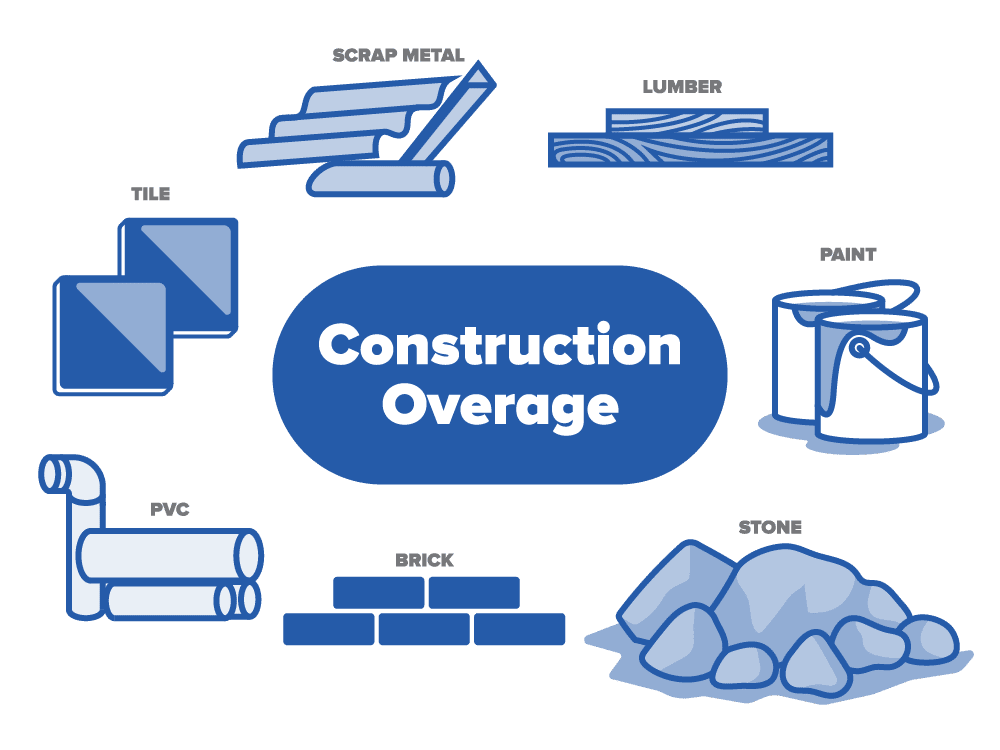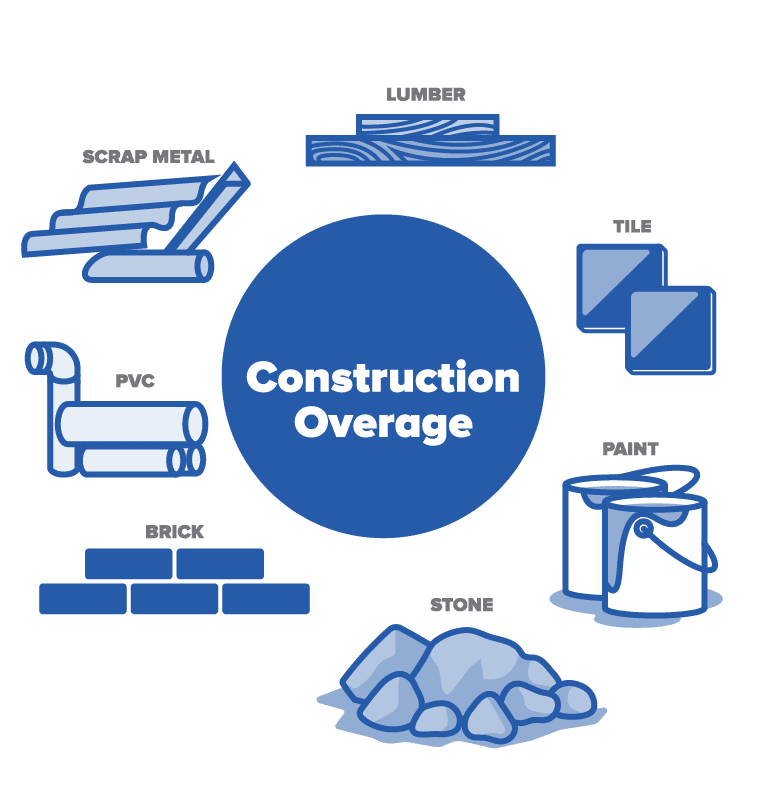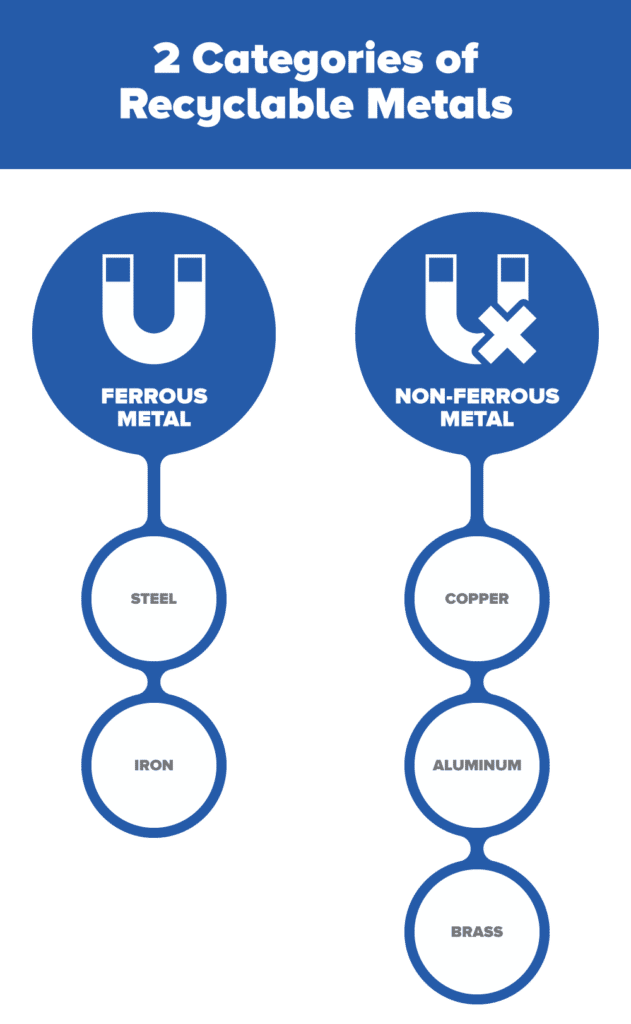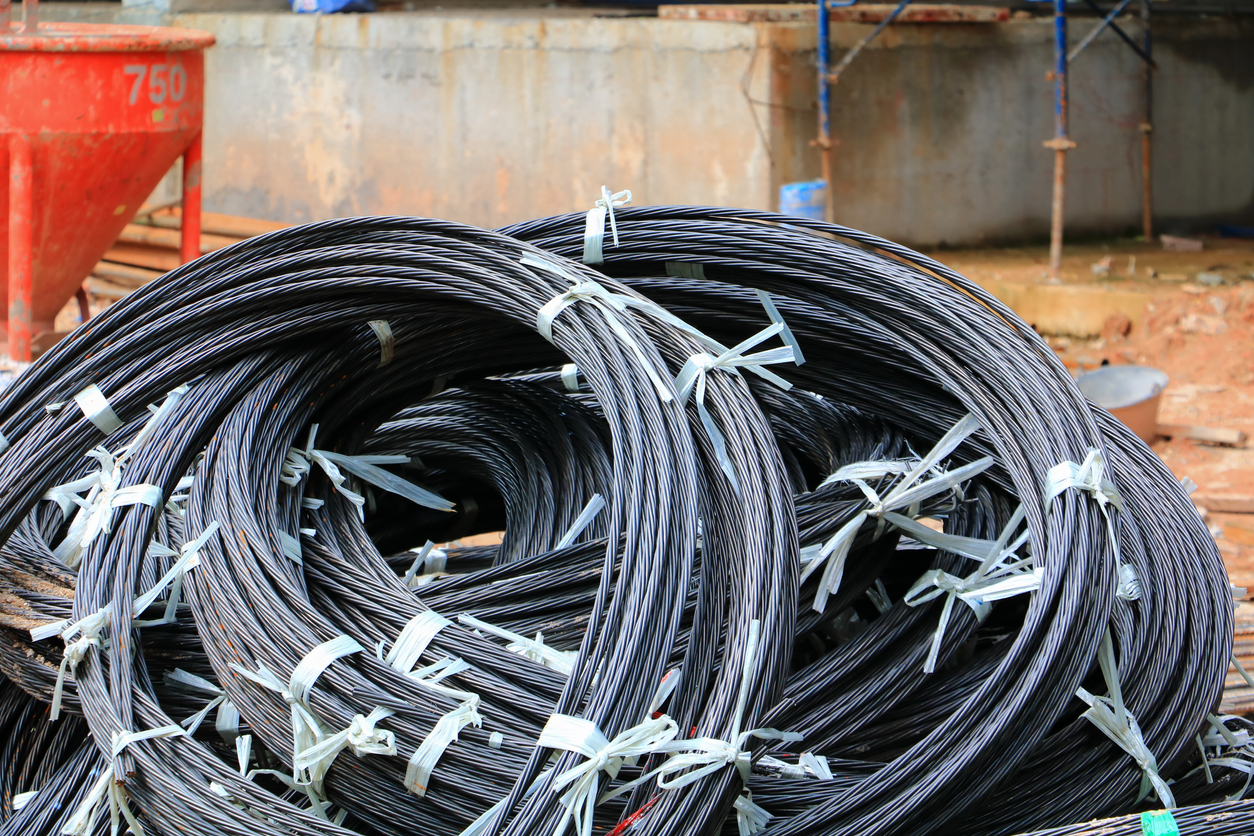Reducing waste isn’t just about protecting natural resources, it’s about saving money. Businesses that generate scrap can recover some of their material costs by recycling their excess material. Many recycling centers pay cash for the most valuable leftover scrap building material.
WHAT IS OVERAGE?
The material left over following the completion of a construction or renovation process is known as overage. Generally, these projects are planned to take all material needs into account and not order too much. But when things come up along the way, such as a design change or a great discount on a bulk purchase, you can end up with overage. Overage can include scrap metal, lumber, PVC, brick, stone, tile, and paint.


Demolition Scrap
Businesses that perform small or large scale demolitions are also likely to have a lot of scrap metal and other materials on their hands at the end of the day. Demolition is sometimes part of a larger renovation or remodel project. Demolition scrap should be kept separate from unused overage material.
The sustainable Solution
Whether building new structures from the ground up, updating, renovating, or tearing down old buildings, the construction and demolition industries have a direct and visible impact on the environment.
A lot of efforts have been made on the design and architecture side to mitigate the impact of building, including choice of material, clean energy solutions, and economical use of space. Selling scrap building material is another way of reducing the overall environmental impact of construction and demolition activity.
SCRAP MATERIAL IS VALUABLE
Excess building material can be sold either for reuse or recycling. The amount you can expect to make from your material will depend on several things including volume and/or weight, condition, and how easy or hard it is to find that particular kind of material. Specialty items might fetch a good price on the secondhand or salvage market, while damaged items and raw material can be sold as scrap.
The benefit to your business’s bottom line from recycling scrap metal and other materials might be modest, but it beats leaving that money on the table and letting the material go to waste.
COMMON RE-SELLABLE AND RECYCLABLE MATERIALS
- Wood
- Plastic
- Concrete and asphalt
- Shingles
- Metal
- Siding and fencing
- Circuit breakers
- Plumbing
- Electrical wiring
- Lighting
- Sinks
- Vents
- Gutters
- Construction wire
- Railings and banisters
- Carpet and carpet padding
- Paint
- Trim
- Mirrors
- Doors, windows, and shutters
Can You Recycle Tools And Hardware?
Any loose odds and ends, or damaged supplies (think: bent nails, stripped screws), can be recycled as scrap metal. That goes for the tools themselves, including power tools and those that use batteries, as well as manual or hand tools. There may be a charge for recycling certain rechargeable batteries.
REMEMBER: SEPARATE RECYCLABLE MATERIALS AS YOU WORK!
Unless you have contracted with an all-in-one junk removal service or rented a container, chances are you will have to find different buyers for different materials. Keep a running inventory of the scrap you’re producing and try to keep it separate, clean, and dry until you are ready to sell it.
Scrap Metal Categories

There are two main categories of scrap metal that can be recycled: ferrous and non-ferrous.
Ferrous Metals
Ferrous metals include iron and steel. Ferrous metals are commonly used in construction materials (such as I-beams and rebar), appliances, engines, and rail. Ferrous metal is generally weighed and sold by the ton, and is worth less on a pound-for-pound basis than non-ferrous metals.
Non-Ferrous Metals
Non-ferrous metals include copper, brass, aluminum, and some grades of steel. Non-ferrous metal does not stick to a magnet.
Copper is commonly found in plumbing and electrical material. There are a number of different grades of copper, based on how clean or pure the material is.
The best way to preserve the value of your copper is to separate it from other material. For example, cut off pipes where they have been soldered, as solder is a different metal and will devalue the copper.
Learn all about recycling copper
Brass can be used for functional purposes like plumbing, hinges, and doorknobs, and is also often found on decorative pieces. Another less common copper alloy, bronze, is also a recyclable non-ferrous metal.
Learn all about recycling brass
Aluminum siding is a common source of construction and demolition scrap. Aluminum is also often used in appliances and HVAC systems.
PALLET WOOD
If you ordered material in bulk, you might have some leftover wood pallets – which can be a real space hog, not to mention a home for bugs. Believe it or not, there are recycling and salvage services for wood pallets, and some manufacturers offer take-back programs.
Some people will use pallet wood as material for other projects, or as firewood. There are some risks associated with upcycling and burning pallet wood, depending on how it was treated. Use caution and educate yourself on the different kinds of wood treatments before putting your pallets to a new use.
OTHER MATERIALS: PAINT, RUBBER, OIL AND CHEMICALS, TEXTILES
Some materials are more difficult to get rid of than others. Paint, chemicals, and pressurized containers require special handling, and heavy-duty plastics and rubber aren’t typically eligible for recycling. Learn about where you can take hard-to-dispose-of materials in this article.
For anything not covered here, or special circumstances, your local waste management or environmental services authorities are often the best place to start.
WHERE CAN I RENT INDUSTRIAL RECYCLING BINS?
If you know you are likely to be generating a large volume of scrap material, you can rent a container from a recycling service. Some accept mixed materials while others, like Cohen, specialize in scrap metal recovery and recycling. Contact Cohen about container services for C&D waste.
For a smaller haul, you can also take your scrap metal to a recycling center near you and be paid cash for it on the spot. Call ahead for hours and current pricing information. Find a Cohen recycling center. (Never been to a scrap yard before? Visit our First Timer’s Guide.)




